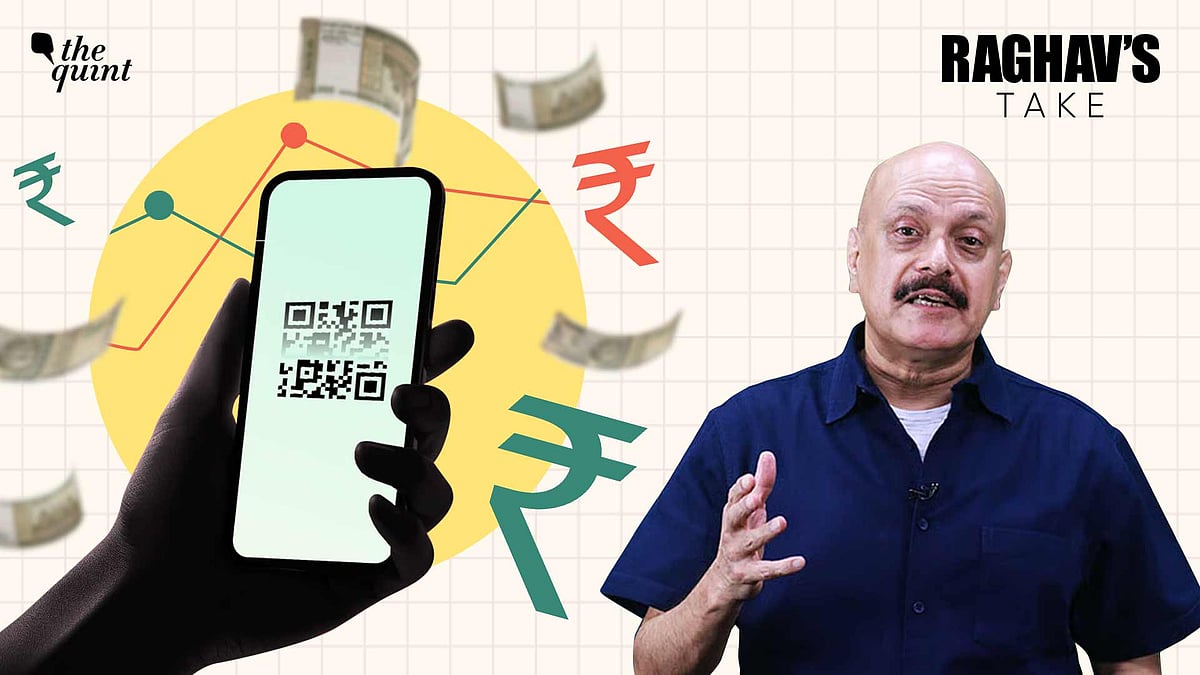GHOOSE, the Digital Gig to Eradicate Corruption in India
Imagine if the government launches GHOOSE: Government’s Haazir, Obedient, and Overtly Samvadensheel Enforcement.

advertisement
Statutory Warning: This is a satirical piece, but one that’s pregnant with possibilities.
Angry residents of a Gujarat town, forced to live with contaminated water, shower currency notes on a corrupt, hapless municipal clerk. The video goes viral.
Prawin Ganeshan accuses Chennai Customs of demanding bribes to clear a consignment. That triggers a massive kerfuffle in New Delhi, followed by stony silence.
India hits its lowest rank in Transparency International’s Corruption Perceptions Index, a shocking 96 out of 180 countries, sliding from a rank of 79 in 2016.
We need a truly radical idea, perhaps even an inconceivable, questionable, and quasi-legal one. Because only poison can kill poison. When “legality” should be judged on the touchstone of “success”. Where the ends shall justify the means.
So, hold on tight to your moral sermons, but fasten your seatbelts for a turbulent thought!
What if India were to de-criminalise the full act of bribery in government processes, ie indemnify not just the bribe-giver, but also the bribe-taker?
In fact, let’s fly even higher with this radical idea. We could go beyond mere legalisation by putting the whole process in the public domain, with transparent “asks” (by the government authority) and “bids” (by approval seekers), exactly like buying and selling stocks on a digitally efficient stock exchange.
What’s GHOOSE? In Colloquial Hindi, It’s a Bribe
Okay, let’s get specific. Imagine the government uses its prodigious digital stack, which has created revolutionary successes like Aadhar and UPI (Unified Payments Interface), to launch GHOOSE, ie Government’s Haazir, Obedient, and Overtly Samvadensheel Enforcement, a platform on which people can “bid” Rs X to get a timely order, while competing government functionaries can put different “asks” for providing that service.
Example One: An Indore firm wants to import Rs 100 cr worth of furniture from China. Since demurrage charges are very high for bulky beds and sofas, it wants a quick customs clearance. It goes to GHOOSE, posts all relevant documents, and bids Rs 1 cr for a 24-hour clearance at any port.
Immediately, three “asks” come forth – Rs 1.35 cr from the deputy customs officer on the upper west coast, Rs 1.30 cr from the assistant collector at a port on the southern tip, and Rs 1.40 cr from the joint collector at a deep water port on the east coast. A fourth customs officer responds with a curt “we shall not participate in your bid but promise to clear as quickly as possible within prescribed norms.” So, a conscientious objector is permitted on GHOOSE!
Our Indore firm closes the Rs 1.35 cr offer from the west coast. As promised, the consignment gets cleared within 24 hours of landing. The bidder pays Rs 40 lacs of GST. The principal amount of Rs 1.35 cr is paid to the 11-member team of the deputy customs officer. Based on an internal rewards roster, the boss keeps Rs 35 lacs, while each of the 10 supporting clerks gets Rs 10 lacs. Everybody pays a total of nearly Rs 40 lacs of income taxes on these “spoils” or “facilitation incentives” of Rs 1.35 cr.
Example Two: Mrs A has a family emergency. She needs a passport within 48 hours to travel to London. She goes to GHOOSE and bids to pay Rs 50,000 to any processing officer who can comply. Immediately, two prompts light up. The officer in Delhi asks for Rs 60,000, but the Chandigarh fellow accepts her bid as is. The person at Jaipur declines to take any fees but promises to process within the rules. Mrs A jumps on a flight to Chandigarh, pays Rs 20,000 of GST, transfers Rs 50,000 to the processing officer’s PayTM account, and boards the Dreamliner to London. Everybody is happy. Sab changa si!
GHOOSE Will Self-Destruct on AI-Curated Data
As a billion transactions rack up on GHOOSE, the government harvests a cornucopia of extremely beneficial data. Now it can run sophisticated AI processors to throw up critical insights:
Which government service/process “leads” in the volume and/or value of “facilitation fees”? Is it customs clearance? Or passport processing? Or registration of property deeds? Or issuance of ration cards? Or rectification of false utility bills? Or whatever!? Once these authentic rankings of “most bribery prone” processes are mined, the government can dive in and simplify the pain points, eradicating the need for bribes. Voila! GHOOSE will create the data for its own cleansing/closure.
GHOOSE data will allow the government to create a “personal integrity index” of its various officers and operations. The conscientious objectors will have the highest ranks. The government can visibly grant promotions and superior ranks to those with the highest “honesty points”. Since government jobs are the epitome of “prestige” in Indian society, there will be a massive pressure on officers to keep a “clean” record so they can qualify for promotions. While the facilitation fees earners will get rich but stagnate at lower levels, the honest guys will trek up the ladder. So, GHOOSE will end up cleansing the system off “bribery prone” officials!
Frankly, I began writing a fanciful, tongue-in-cheek piece; but at the end of it, I am convinced that it could work in a radical, wholly unintended manner to rid India of corruption in government processes! Often, satire has the acerbic ability to shine a harsh light—simply, colloquially, so it’s understood by the masses—which becomes its own cure.
C’mon Digital India, let’s try the GHOOSE.